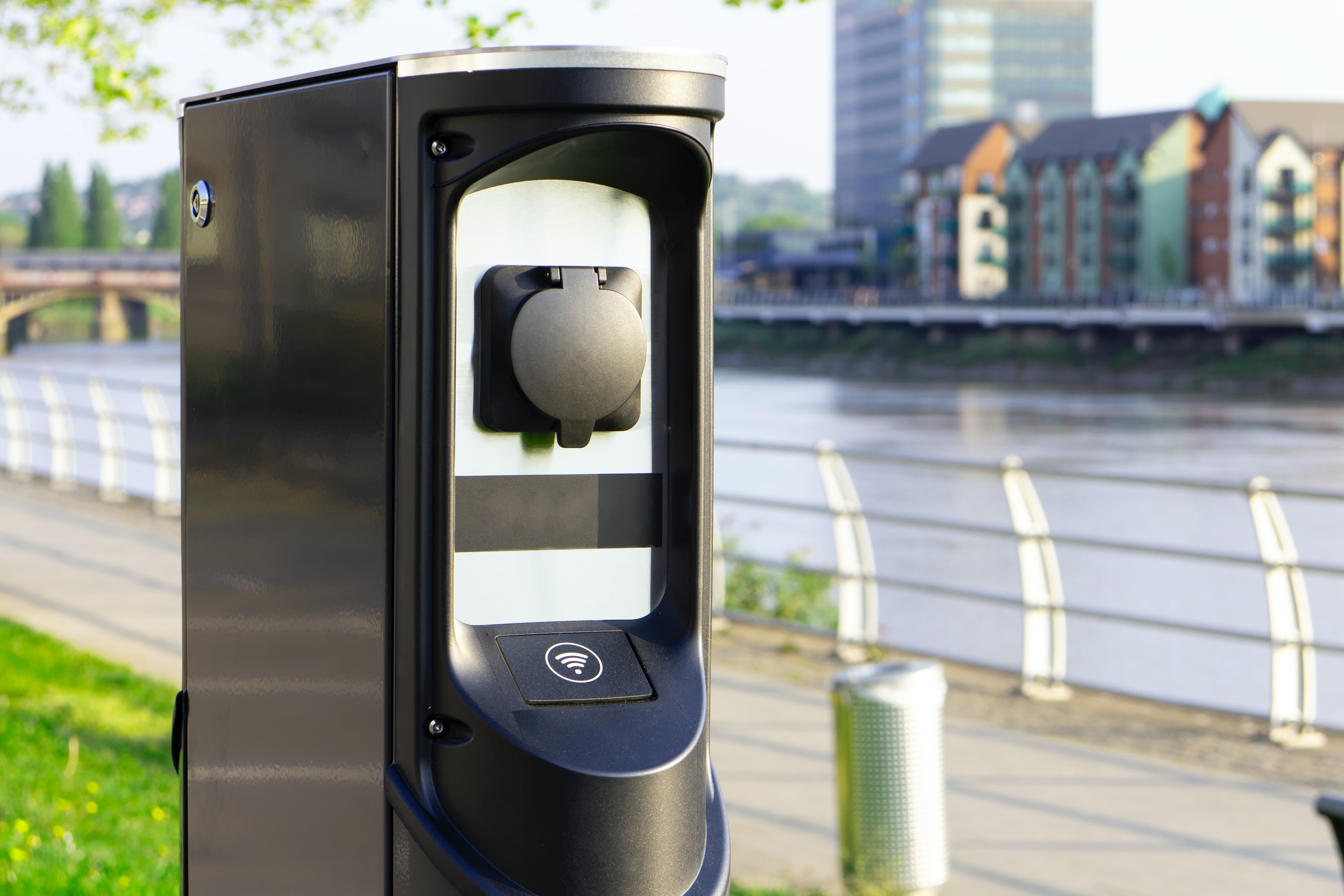
Demand for electric vehicles (EVs) is increasing steadily, partly because of rising concern about the environmental damage caused by fossil fuels, but also due to the impending ban on the sale of petrol and diesel cars in the UK.
Undoubtedly, many motorists, who are used to popping into a petrol station where they can refuel their vehicle in minutes, expect to be able to charge their new EVs at home overnight and ‘top up’ the charge during the daytime at work or while shopping.
For businesses considering electric car charging station installation, a key concern is the different EV charging speeds. Which commercial EV charging points do you need and what is the likely impact on recharging times?
Types of Commercial EV Chargers
Electric vehicle charging points can be categorised into three groups:
Slow (up to 3.6kW)
- Commonly found at home for overnight charging.
- A full charge can be achieved after 6-12 hours, so inappropriate for commercial settings.
- Low demand on electricity supplies.
- Cheaper charge rates compared to faster chargers.
Fast (7kW – 22kW)
- Usually found in public areas, such as motorway service stations and shopping centres.
- A full charge takes 3-4 hours.
- Low demand on the electricity grid, but more expensive than slow chargers.
- May be untethered for use by car owners with different cables.
Rapid (43kW – 350kW)
- Enables a fast charge in as little as 30 minutes.
- Imposes a drain on the local electricity grid, which could cause supply problems.
- More expensive to purchase and run.
- Add-ons may be required at a high price.
Which EV Charger Should I Choose For My Business?
While motorists will probably expect the fastest charging facility available, opting for the quickest does not necessarily guarantee that you’re making the best purchasing decision for your business.
It’s important to consider the advantages and disadvantages of the different types of charging stations, but it’s equally necessary to weigh up these key factors:
- The number of users who will need to access a charging point in an average day.
- How employees’ staggered shift patterns may impact on demand for recharging points.
- How many users will need fast charging (such as employees who drive to remote appointments regularly).
- How many employees can leave their vehicles to charge over a longer period.
- The impact on local electricity supplies.
If, for example, most of your employees work shifts of at least four hours and rarely leave the site during that time, it may be prudent to invest in fast chargers. In this situation, it may be more cost-effective to install multiple units compared to a limited number of rapid chargers that are rarely needed.
In essence, you should evaluate the needs of your business and your staff before making a decision about which charging stations to purchase, to ensure that you’re installing the EV charging points most suited to your unique requirements.
Contact Lowe and Oliver For Expert Professional Advice
For more information about the different types of EV charging stations and which most suits your business, please get in touch with us today.
Image Source: Pexels



